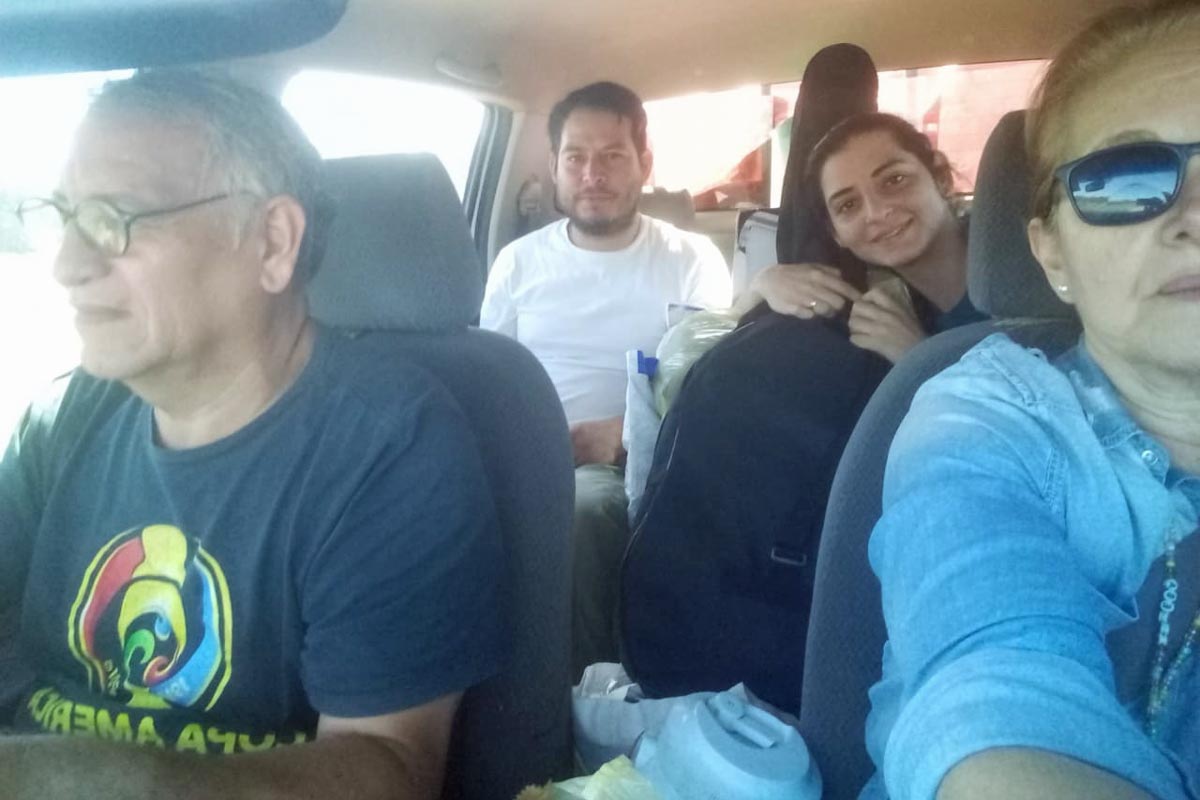Building up indigenous leaders in Paraguay
Facing the future with only 14 ordained priests in the whole country is a significant challenge for the Anglican Church in Paraguay
With only four ordained priests in Asuncion, the capital city, and 10 in the Chaco region, home to some of the Original Peoples, Christians belonging to Anglican churches in Paraguay are calling for urgent action to train future leaders.
In 2020, indigenous churches presented an official request to work towards indigenous leaders in more senior roles. As a result the vicar general, CMS local partner Agustín Maidana, is working to train more leaders in indigenous communities and increase the numbers being ordained. Agustín is also clear on the need for urban and indigenous churches to work more closely together.
Before the Covid-19 pandemic, the majority of training had taken place at the Anglican church’s centre at Rio Verde, but this limited who could join due to the cost of travel to the remote venue and lack of space.
Taking training on the road
So this year, Agustín, his wife Teresa and another couple, Gustavo and Rebecca Flores, have been travelling to four different communities (Makxawaya, La Patria, El Estribo and Sombrero Piri) to run a range of training sessions. Rebecca trains volunteers to lead Sunday schools, increasing church engagement with the youngest generations where that had not always been happening. Teresa runs sewing workshops, to build income generating capacity for those who had no other way to earn.

Agustín and Gustavo focus on leadership training. Deacons, pastors and pastoral assistants participate in a three-year programme, with attendance recorded to ensure that participants have been in 95 per cent of the classes. Agustín explains that this is to emphasise the importance of commitment from those who seek positions of leadership – and those who attend regularly receive the most benefit.
One deacon, Gumercindo Torres, a candidate for ordination next year and member for the Chaco church on the diocesan executive committee, is working with younger people. He draws on study he has undertaken and uses the Abundant Life course to connect and share with younger people.
Open to opportunities
One significant factor in delivering the training programme is the high levels of illiteracy in the Chaco. Of those currently training, around 95 per cent did not finish primary school. This limits options for training outside the region or for widening perspectives.
In contrast, pastor Elvio Cabanas had access to a better education, giving him opportunities to work at the ministry of education with oversight for Chaco areas. During the pandemic he returned to the indigenous community of Sombrero Piri and has been sharing his experience. Along with Elvio came his son, who has grown up with the dual indigenous and urban influences, and who has a certificate in sports coaching. He has begun to use football to connect with young people. Through that contact, they have been invited to services at the church.
As a fruit of Elvio and his son connecting, there are a good number of young people involved in the church there. Music is a big thing for the younger people – so Elvio’s son started forming a group of singers, to help the younger people to engage.
Expanding vision
As Agustín observes, “Academic training as a base [can help] to bring about holistic change and vision for something wider.”
Agustín highlights that part of the challenge of developing leadership in the Chaco is sharing that vision among urban centres, “for them to have a view wider than their back yard – for them to see areas of the Chaco as place for ministry and mission.” He continues, “One of main things the urban church could learn from indigenous churches is in the simplicity and depth of their faith in the Lord… One of our challenges is how to link churches in the Chaco with churches in urban centres.”
And are there encouragements in the midst of this struggle?
Agustín reports: “Today, thanks to the Lord, we are reaching at least 240 people [with training], although not all are registered in the workshops.
Tears of gratitude
“There is greater verbal contact with everyone in the language that most of us on the team speak (Guarani), especially with women: young people, mothers, grandmothers feel included, they love to praise the Lord with songs. And despite the fact that many of them do not know how to read or write, they learn orally and understand the message of the songs, since many of them are precious hymns and Psalms full of biblical truths.
“These moments of praise and adoration are really very precious, where sincere prayers of repentance and renewal of faith arise in several of them amid tears of gratitude to the Lord. It is really a joy to hear them and see them sing with so much love despite their rather shy personality and the difficult situations that surround them.”